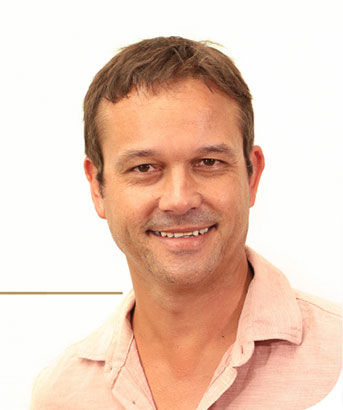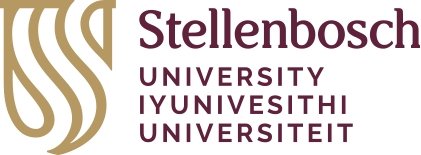
- This event has passed.
Prof Wessel du Toit
May 9, 2023 @ 17:3018:30


My wine journey
Since I have been an undergraduate, oxygen and phenolic compounds in wine fascinated me. This is where my journey with these two important aspects in wine started.
The role of oxygen in white and red wine composition and sensorial development has been investigated in my research. This includes the role it plays in the colour, phenolic and mouthfeel properties of red wines, often added during a process called ‘micro-oxygenation’. However, the control of oxygen in white wines is even more important, as it is normally more sensitive towards unwanted oxidation. The role of important antioxidants, such as sulphur dioxide (SO2) and glutathione, also required attention. My research has shown that SO2 addition to white juice is sufficient to preserve favourable aroma compounds, such as varietal thiols, which probably negate the use of an inert gas during juice handling. The glutathione content of commercially used inactivated yeast products was also measured, as well as the effects of yeast strains on this compound. The effects of certain antioxidants on the consumption rate of oxygen in wine were investigated.
However, for this research to take place, new methods for varietal thiols and glutathione analyses had to be developed. This paved the way for other research projects to also incorporate these analytical methods in their research portfolios. The sensory interaction between varietal thiols and other oxidation-related compounds was tested. Past studies on oxidation in wine has focused on exposing the wine to very high temperatures and oxygen levels to enhance oxidation, but this does not happen in a normal cellar environment. Following work investigated the effects of exposing white wine to slow, repeated oxidation, with in-depth sensory and chemical characterisation. We finally also investigated better-controlled removal of oxygen in wine through sparging. This work led us to compile better recommendations for winemakers in terms of oxygen control and its effects on wines.
Phenolics are an important group of compounds in red wines. The main winemaking procedure influencing the concentration of these group of compounds in red wine is skin maceration. However, to monitor this process effectively, suitable phenolic analyses methods had to be developed. Spectrophotometric and liquid chromatographic methods are normally used to quantify phenolics in wine, but these may be laborious and require expensive equipment. The development of partial least square-based calibration models for a range of phenolic compounds has made the analyses of these compounds using ultraviolet-visible and infrared spectroscopy possible. These compounds can now be accurately analysed and monitored in grapes, during fermentation and in the final wines, in a cheaper and faster manner. This has led to the development of an online platform, PhenoLab, that can be used by wine producers to convert absorbency values into concentrations in terms of phenolics, while interpreting these results with those of their peers. The accurate measurement of phenolics in grapes and wine can assist winemakers to better craft a certain style of red wine required by the market.
The role of the grape ripeness levels and the addition of pectolytic enzymes in phenolic extraction was also investigated. Depectination of grape cell walls, induced by enzyme addition and ripening, affected the extraction of phenolics in young red wines. Differences in the young wines’ phenolic profile were still reflected during ageing. Further work on ratios of phenolics and oxygen in model wine systems added further value to elucidate red wine ageing reactions involving phenolic compounds.
The sensory interaction between phenolics, polysaccharides and proteins is thought to influence certain sensory characteristics of red wine. Our work has shown that pectolytic enzyme addition affects the composition of polysaccharides in must and wine, thereby influencing the perception of astringency. Novel findings also suggest that wine polysaccharides compete with condensed tannins for salivary protein as ligand partners, with the addition of enzymes also influencing this.
Although large advances are made every day in terms of wine composition, we only know a small part of what is really happening in this beverage; hence my fascination with wine continues. As Ralph Waldo Ermerson said: “It’s not the destination; it’s the journey.”
WATCH THE INAUGURAL LECTURE HERE
Short biography
Wessel du Toit completed his matric at Franschhoek High School, obtained his BSc degree in 1996, followed by an BSc honours (Wine biotechnology) and MSc Agric (Oenology), and then worked at KWV from 2000 to 2001 as an oenologist. He subsequently joined the Department of Viticulture and Oenology (DVO) at Stellenbosch University (SU) in 2001, obtained his doctorate in Oenology in 2006, and was promoted to full professor in 2020.
He has since established an internationally recognised research group in wine chemistry and production at the DVO and the South African Grape and Wine Research Institute. He has published 85 peer-reviewed research articles, 14 conference papers and four chapters in subject-related books and co-authored 151 conference presentations. He has been involved with or currently manages 40 research projects, funded by the wine industry, private companies, THRIP (the Technology and Human Resources for Industry Programme) and the National Research Foundation (NRF). He obtained a Y and a C1 rating from the NRF in 2013 and 2019, respectively. He has research collaborations with several local and international institutions. One patented commercially available product and an online phenolic measurement platform for wine have been developed from his research.
Prof Du Toit teaches undergraduate modules in wine production and chemistry. He has supervised or co-supervised 10 PhD and 37 MSc students. He has presented numerous short courses and workshops to the wine industry and serves on the boards of several professional and industry-related bodies. He firmly believes that research in general should be to the benefit of society, and especially the wine industry.
Prof Du Toit is married to Ilze du Toit and they have two boys, Phillip and Simon, who would much rather assist in making wine at home than doing their house chores.

Recent Comments